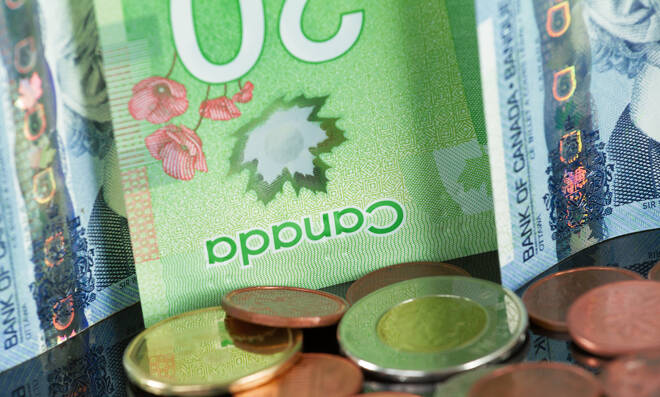Advertisement
Advertisement
USD/CAD: Loonie Weakens as Oil Prices Edge Lower; Volatility Will Dominate
By:
The Canadian dollar weakened against its U.S. counterpart as the firm greenback and falling energy prices weighed on the commodity currency, obscuring Justin Trudeau's announcement of a snap election.
The Canadian dollar weakened against its U.S. counterpart as the firm greenback and falling energy prices weighed on the commodity currency, obscuring Justin Trudeau’s announcement of a snap election.
Today, the dollar to loonie conversion rose to 1.2575, up from Friday’s close of 1.2513. The Canadian dollar had lost about 1% in July – the second biggest monthly drop since September 2020 and has weakened about 0.7% so far this month.
Despite Justin Trudeau’s decision to call an early election, China’s slower economic growth weighed on sentiment. China’s economic indicators caused a surprise decline in global shares, as investors reacted to the spreading Delta COVID-19 variant. The outlook for global economic growth influences the Canadian dollar since the country exports commodities, including oil.
Canada is the world’s fourth-largest exporter of oil, which edged lower on rising concern that the new delta variant will derail the global economic recovery, slowing the recovery of oil demand.
U.S. West Texas Intermediate (WTI) crude futures were trading over 2.60% lower at $66.68 a barrel. Lower oil prices lead to lower U.S. dollar earnings for Canadian exporters, resulting in a decreased value of the loonie.
“This (snap election) should be generally good news for CAD, especially if investors expect Trudeau to secure a majority in the parliament, although the magnitude of the FX impact should not be very significant. Canada has already passed huge fiscal support packages since the pandemic hit and can already count on the best vaccination rate in the world. One point where markets may see the positive impact from Trudeau’s party gaining full majority is on the oil pipelines issues, as the current coalition allies (the New Democratic Party) strongly opposes some pipeline projects,” noted Francesco Pesole, FX Strategist at ING.
“Looking at the shorter term, inflation data for July will be the key highlight in Canada this week. Barring a major deviation from June’s 3.1% headline figure (and especially if inflation remains above 3.0%), there should not be major repercussions on CAD, as the release should not materially change the Bank of Canada’s plans for unwinding stimulus. We continue to expect, by year-end, to see the end of QE in Canada, and to see USD/CAD trade close to 1.20.”
The dollar index, a measurement of the dollar’s value relative to six foreign currencies, was trading 0.09% higher at 92.607 –not far from this year’s high of 93.437.”
The greenback was supported by hawkish remarks from the US Federal Reserve makers last week which led markets to move forward with expectations of policy tightening. The Federal Reserve may move forward on tapering asset purchases and increase rates sooner if the inflation rate rises. This could effectively push the dollar up in value.
The risk that the world’s dominant reserve currency, the USD, rise over the coming year is high, largely driven by the Fed’s expectation of two rate hikes in 2023. A strengthening dollar and growing risk that the Federal Reserve would tighten its monetary policy earlier than expected would push the USD to CAD pair higher.
About the Author
Vivek Kumarauthor
Vivek has over five years of experience in working for the financial market as a strategist and economist.
Advertisement
